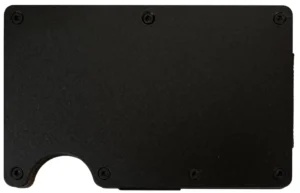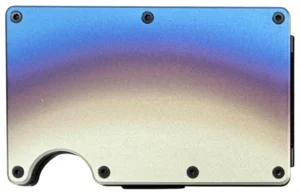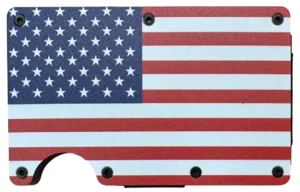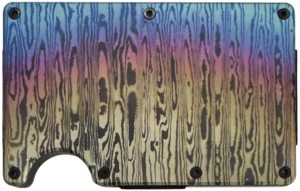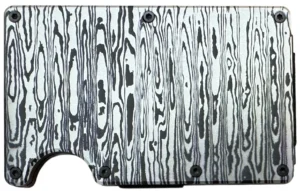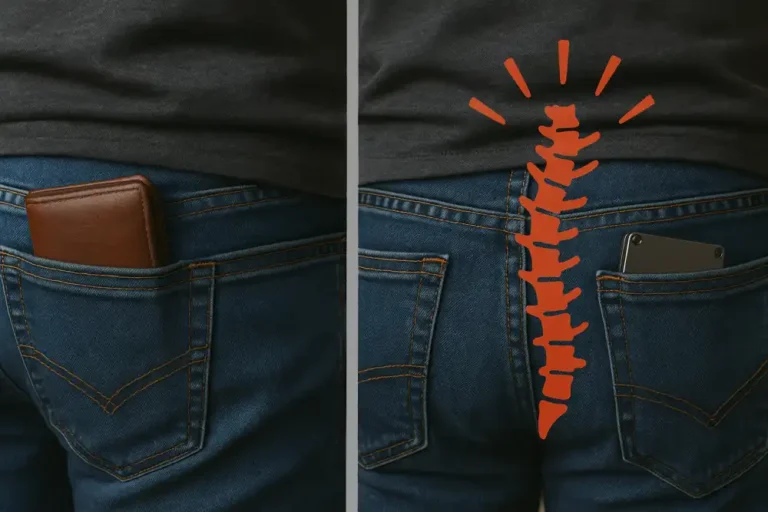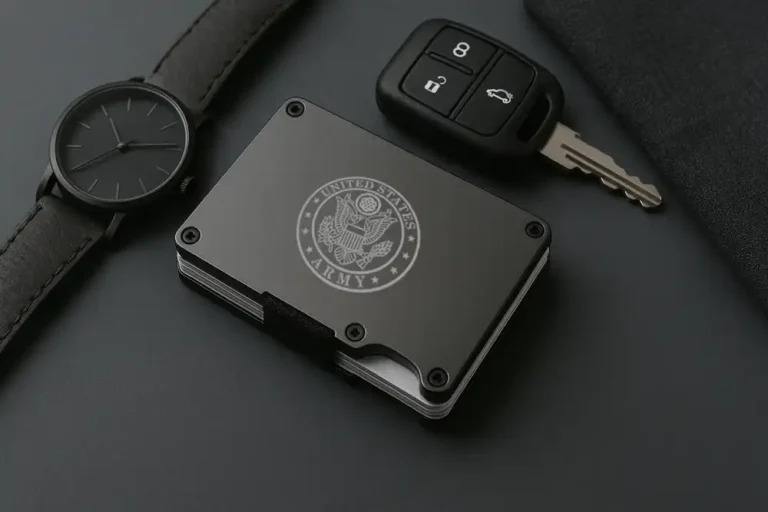How Metal Wallets Combat Digital Pickpocketing Effectively
Digital theft is evolving rapidly with criminals using sophisticated methods to access your personal data and funds without any physical interaction. As our world shifts into digital transactions, traditional security methods like RFID-blocking technology have come under scrutiny. Increasingly, custom metal wallets have emerged as the go-to solution for those concerned about digital pickpocketing and identity theft; At cascade custom creations we keep these modern security trends in mind, by offering RFID-Blocking Metal Wallets.
This article explains how metal wallets physically prevent digital pickpocketing by blocking wireless signals and preventing card skimming. It highlights key benefits such as enhanced durability and stylish design while comparing metal wallets to conventional RFID-blocking solutions—be sure to visit our shop for the latest designs. With technical insights, industry comparisons, and real-world examples, readers will learn how metal construction offers a robust alternative to RFID gimmicks, ensuring stronger protection for credit cards and other sensitive data (feel free to contact us for more information).
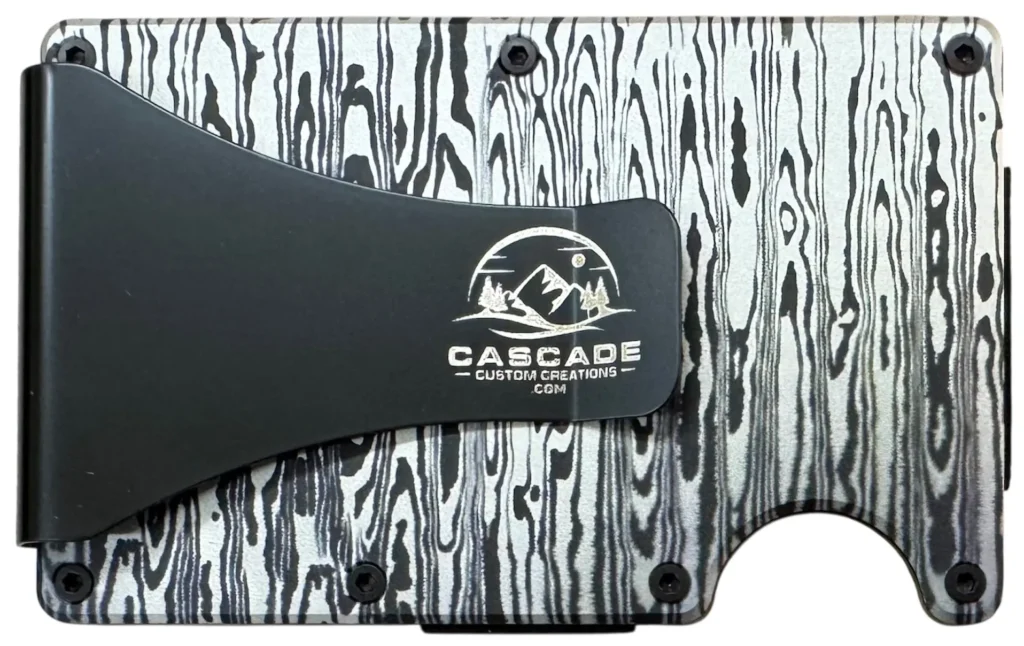
What Is Digital Pickpocketing and How Does It Threaten Your Wallet Security?
Digital pickpocketing is a form of theft where criminals exploit wireless signals to steal data without ever touching the victim’s wallet. Using advanced tools like RFID scanners, malware-enabled devices, and social engineering tactics, attackers intercept data transmitted from credit cards, debit cards, smartphones, or crypto wallets. This can lead to unauthorized transactions, identity fraud, and broader security breaches. The danger increases in crowded public areas, where conventional protection methods may not suffice, leaving individuals vulnerable to significant financial and identity risks.
How Does Digital Theft Occur Without Physical Contact?
Digital theft exploits the electromagnetic signals from RFID chips found in many modern cards and passports. Thieves with portable scanners can capture information such as card numbers, expiration dates, and even cryptographic keys simply by getting close enough to the target. Operating in busy public spaces like transit hubs or marketplaces, attackers use discreet devices to intercept data and bypass encryption protocols. As more people adopt RFID-enabled cards for convenience, the need for improved, reliable security measures becomes increasingly apparent.
What Are the Common Methods Used in Digital Pickpocketing?

Common techniques include: – RFID Skimming: Hidden devices scan RFID signals to capture data. – Signal Amplification: Devices boost a card’s signal, allowing data to be intercepted from a greater distance. – Relay Attacks: Attackers transmit RFID signals over longer distances to capture normally unreachable data.
Additionally, cybercriminals may exploit unsecured networks to infect mobile devices with malware that can extract nearby RFID data. Understanding these methods is crucial because standard RFID-blocking solutions may not fully counter all emerging threats.
Why Are Traditional RFID-Blocking Wallets Sometimes Ineffective?
Traditional RFID-blocking wallets use materials that absorb or reflect radio frequencies. However, thin fabrics or plastics can deteriorate, reducing their effectiveness. These wallets usually target specific frequency ranges, making them less effective against multi-frequency or advanced scanning technologies. Once the protective layer is compromised by wear, the digital security promise fails, prompting many consumers to turn to metal wallets for their inherently reliable and long-lasting defense.
How Do Metal Wallets Physically Prevent Digital Pickpocketing?
Metal wallets work by using the natural properties of metal to block electromagnetic signals. When a wallet is created from a continuous sheet of metal, it forms a Faraday cage—a conductive barrier that stops external radio signals from reaching its interior. Unlike conventional RFID shields that depend on treated fabrics, a solid metal structure consistently protects against interference regardless of wear.
By physically obstructing signal transmission, metal wallets prevent digital pickpocketing techniques such as signal amplification and relay attacks. Their construction also minimizes accidental leaks that might occur in fabric-based wallets, providing steadfast protection against both digital and physical theft.
What Physical Properties of Metal Block Wireless Signals?
The key property is conductivity. Metals allow electrons to move freely, and when radio waves strike a metal surface, the resulting electron movement creates opposing electromagnetic fields that cancel out the incoming signals. This Faraday cage effect ensures that, when fully enclosed, no external wireless signal can penetrate. Additionally, the density and thickness of the metal are critical; a thicker, uninterrupted piece of metal leaves no gaps for signals to seep through, ensuring superior and enduring protection.
How Does Metal Construction Protect Against Card Skimming?

Card skimming occurs when a thief uses a scanner to capture data from an RFID chip on a payment card. A metal wallet encloses the card within a continuous metallic shell, preventing the RFID chip from transmitting any data externally. Unlike fabric-based solutions that may eventually develop creases or punctures allowing signal leakage, metal wallets maintain a constant barrier. Their resistance to environmental factors such as moisture and abrasion ensures that the protective quality remains intact over time.
Why Is Metal More Reliable Than RFID-Blocking Technology?
Metal wallets offer reliable protection because they rely on fundamental physical properties rather than layers of material that may degrade. Traditional RFID-blocking solutions can suffer from uneven protection if the lining wears out. In contrast, a metal wallet’s solid construction provides uninterrupted defense. Additionally, refined engineering in metal wallet design allows for both security and an attractive, ergonomic finish, making them highly dependable and appealing for security-conscious consumers.
What Are the Key Benefits of Using Metal Wallets for Digital Theft Protection?
Metal wallets not only block digital pickpocketing but also enhance durability and style. Their primary benefit is the complete blockage of electromagnetic interference via the Faraday cage effect, rendering stolen wireless signals useless. This eliminates vulnerabilities that are common in traditional RFID-blocking wallets.
Moreover, metal wallets are extremely durable. Metal resists bending, cutting, and other forms of physical damage better than fabric or plastic materials. The sleek, minimalist design also appeals to users who appreciate both security and style, ensuring that the wallet remains functional and visually appealing over its long lifespan.
How Do Metal Wallets Enhance Durability and Longevity?

Engineered from high-quality metal alloys, these wallets offer exceptional strength and resilience. Unlike cloth or polymer wallets, which can develop scratches or cracks over time, metal wallets maintain their structural integrity even after repeated impacts or exposure to harsh environmental conditions like moisture and UV rays. This enhanced durability gives consumers long-term security without frequent replacements, translating into cost savings and sustained protection.
In What Ways Do Metal Wallets Offer Stylish and Functional Design?
Modern metal wallets are designed with both elegance and practicality in mind. Precision engineering allows for intricate engravings and polished finishes, giving these wallets a premium look. They are typically slim and easy to carry, with smartly integrated features such as card clips, money compartments, and customizable engravings. This balance of aesthetics and functionality makes metal wallets an ideal accessory for professionals and anyone who values both security and style.
How Do Metal Wallets Provide Peace of Mind Without RFID Gimmicks?
The simplicity of a metal wallet’s design means that its security is inherent and long-lasting. Without relying on additional RFID-blocking layers that might degrade or become compromised, users benefit from continuous protection. This straightforward, physically robust barrier eliminates the uncertainty associated with RFID gimmicks and ensures sensitive data remains shielded from digital theft, thereby offering true peace of mind.
What Are Effective RFID Alternatives for Wallet Security?
While RFID-blocking technology is still common, metal wallets provide an innovative alternative that overcomes many of the limitations of fabric and plastic solutions. Metals such as aluminum, titanium, or stainless steel create a robust physical barrier against wireless data theft. In controlled tests, metal wallets have demonstrated their ability to stop RFID signals, as well as prevent skimming and relay attacks, making them a comprehensive security solution.
Effective alternatives may also include wallets with additional security features like integrated alarms or biometric locks, but these options often require maintenance and battery power—issues that metal wallets avoid. Their low-maintenance nature coupled with high reliability positions metal wallets as a preferred choice for long-term security.
How Do Metal Wallets Compare to Other RFID-Blocking Solutions?
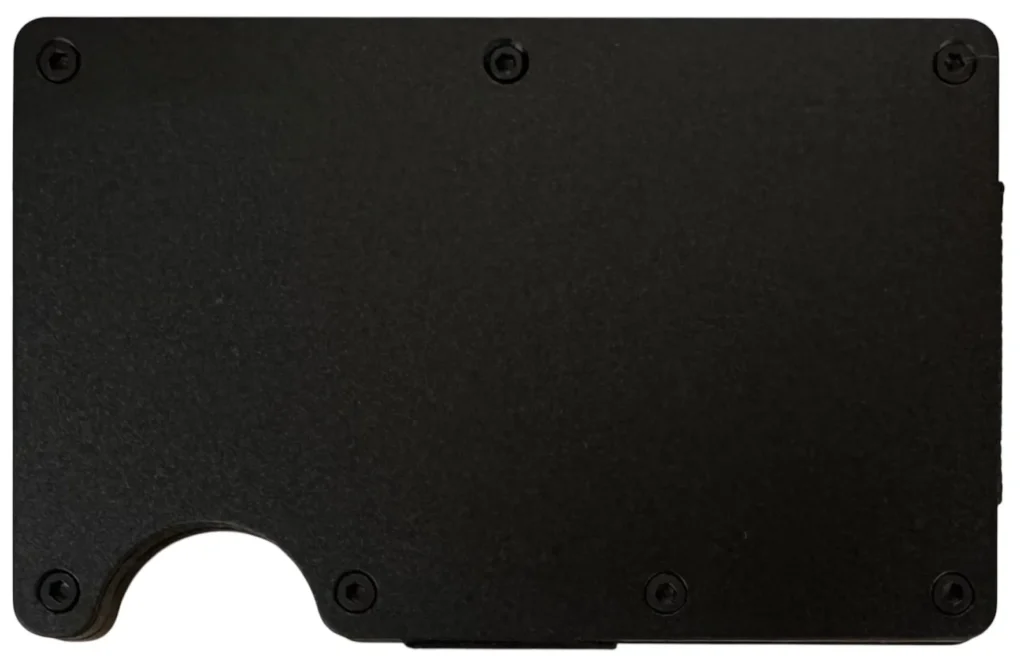
In comparative tests, metal wallets frequently outperform traditional RFID-blocking wallets. While fabric-based solutions might only reduce electromagnetic interference by 80–90%, metal wallets can block up to 99% of such signals. Furthermore, unlike materials that lose effectiveness over time due to wear, metal wallets offer consistent, durable protection without the need for periodic replacement or recharging, providing better security ratings overall.
What Other Physical Security Features Complement Metal Wallets?
Beyond signal blocking, many metal wallets incorporate extra physical security features. Some models feature hidden compartments for extra cash or backup cards and include design elements like reinforced edges or ball-bearing mechanisms that deter physical theft. This blend of digital and physical security creates a synergistic effect, ensuring that every aspect of the wallet contributes to overall user safety.
Can Metal Wallets Protect Against Both Digital and Physical Theft?
Yes, metal wallets are designed to offer dual protection. Digitally, they block RFID signals through a Faraday cage effect, preventing data interception. Physically, their rugged, heavy construction makes them less attractive targets for pickpockets compared to lightweight, fabric-based wallets. Rigorous testing in both controlled environments and real-world conditions has shown that metal wallets provide robust protection against a wide spectrum of theft methods.
How Can Consumers Choose the Best Metal Wallet for Digital Theft Protection?
When selecting a metal wallet, consumers should evaluate several key attributes: – Material Quality: High-grade metals like titanium or stainless steel ensure strength and durability. – Design and Construction: Look for seamless construction, secure locking mechanisms (e.g., spring-loaded clasps or magnetic closures), and a design that provides ample space without compromising the Faraday cage effect. – User Feedback: Reviews and expert assessments help gauge real-world performance in terms of durability, style, and overall security. – Warranty and Support: Choose vendors with a reputation for quality customer service, clear warranty policies, and thorough product information.
What Features Should You Look for in a Metal Wallet?
The ideal metal wallet should be made from a solid, uninterrupted piece of metal to ensure a complete Faraday cage effect. Secure locking mechanisms prevent accidental openings, while a minimalist layout helps maintain effective signal blocking. Additional features like customizable engravings and integrated card clips add both functionality and aesthetic value. Technical specifications and reviews confirming successful signal attenuation tests are also important considerations.
How Do User Reviews Reflect Metal Wallet Effectiveness?
User testimonials consistently highlight that metal wallets effectively block RFID signals, with many reporting no incidents of unauthorized transactions after switching. Reviews often applaud the wallet’s durability—many users note that their metal wallet has withstood everyday wear and tear while maintaining its protective quality. Such feedback reinforces that, when properly manufactured, metal wallets offer a reliable and effective solution for digital theft protection.
Where Can You Buy Reliable Metal Wallets Without RFID Gimmicks?
Reliable metal wallets are available through reputable specialty retailers and established e-commerce platforms that specialize in security and premium craftsmanship. Look for trusted brands with strong customer reviews and detailed product specifications. Manufacturers known for quality craftsmanship, such as those offering handcrafted and laser-engraved options, are often a good choice. Reading warranty details and third-party test reports can further ensure that you are investing in a product that truly delivers robust protection.
How Does Using a Metal Wallet Fit Into a Broader Digital Theft Protection Strategy?
Integrating a metal wallet into your overall digital security strategy is a crucial step toward comprehensive protection. A metal wallet acts as a physical barrier against digital pickpocketing and complements other practices like using strong, unique passwords, two-factor authentication, and regular monitoring of your financial accounts. By combining these digital habits with the inherent security of a metal wallet, you create multiple layers of defense that significantly reduce the risk of identity theft and financial fraud.
What Other Precautions Should Security-Conscious Individuals Take?
In addition to using a metal wallet, it is wise to adopt several complementary security measures: – Maintain and regularly update strong, unique passwords for all financial and personal accounts. – Enable two-factor authentication and secure network connections during online transactions. – Monitor your credit history and consider identity theft protection services to catch suspicious activity early. – Stay informed about evolving cybersecurity threats by following reliable updates and security news.
How Does Wallet Security Impact Overall Personal Data Safety?
A compromised wallet can be a gateway to more extensive digital and financial harm. Secure wallet practices, such as investing in a metal wallet, contribute significantly to protecting sensitive information stored on cards and identification tools. When combined with broader cybersecurity measures, this approach helps reduce the overall risk posed by both physical and digital theft, reinforcing your entire personal data safety protocol.
Why Is Education About Digital Theft Important for Wallet Users?
Understanding how digital pickpocketing works empowers users to recognize and address vulnerabilities in traditional security measures. Staying educated on the latest methods used by cybercriminals enables informed purchasing decisions and encourages the continuous improvement of wallet designs. Well-informed consumers not only enhance their own security but also help drive market innovation, leading to safer products for everyone.
What Are Common Myths About RFID Blocking and How Do Metal Wallets Dispel Them?
Many consumers assume that any RFID-blocking lining is sufficient to prevent digital pickpocketing. However, such solutions often rely on outdated or degrading materials. Metal wallets dispel this myth by demonstrating that true protection lies in the wallet’s construction. Their solid, uniform design offers a complete Faraday cage effect, which is far more reliable than superficial RFID gimmicks.
Is RFID Blocking Always Necessary for Digital Theft Protection?
While RFID blocking can provide some protection, it is often limited and susceptible to physical wear. Metal wallets, by fully blocking electromagnetic signals, eliminate the need for additional layers that might fail over time. This single, robust solution simplifies security and reduces potential vulnerabilities.
How Do Metal Wallets Challenge the Need for RFID Gimmicks?
By relying on a continuous metal construction, metal wallets demonstrate that a simple, well-engineered design can offer superior protection compared to complex RFID-blocking enhancements. Their inherent reliability and durability make additional gimmicks unnecessary, establishing a new standard for both digital and physical security.
Final Thoughts
Metal wallets represent a sophisticated, reliable solution for protecting against both digital pickpocketing and physical theft. Their construction creates a fail-safe Faraday cage that consistently blocks RFID signals, while their durable, attractive design offers long-lasting protection. For anyone serious about safeguarding personal data and valuables, a metal wallet is more than just an accessory—it’s a cornerstone of a comprehensive security strategy.
Frequently Asked Questions
Q: How do metal wallets block digital pickpocketing? A: They use the Faraday cage effect, where the uninterrupted metal construction prevents radio frequency signals from reaching RFID-enabled cards.
Q: Are metal wallets more durable than traditional RFID-blocking wallets? A: Yes, metal wallets are made from high-grade metals that resist physical damage and environmental wear, ensuring long-term protection.
Q: Can metal wallets protect against both digital and physical theft? A: Absolutely. They block electromagnetic signals to prevent digital theft and are heavy and robust, deterring physical pickpocketing.
Q: Do I need additional RFID-blocking products if I use a metal wallet? A: No, the inherent construction of metal wallets provides complete shielding, eliminating the need for extra RFID-blocking layers.
Q: Where can I buy a reliable metal wallet? A: Reputable specialty retailers, trusted online stores, and manufacturer websites known for premium craftsmanship offer reliable metal wallets with strong customer reviews.
Q: How does a metal wallet fit into a broader digital security strategy? A: It forms a critical part of a multi-layered defense, complementing strong passwords, secure network practices, and regular financial monitoring to reduce overall digital theft risks.
Q: Are metal wallets expensive compared to traditional wallets? A: While the initial cost may be higher, their durability and effective protection make them a cost-efficient investment over time.
For more information about Cascade Custom Creations, and our custom wallets, visit our about-us page.



